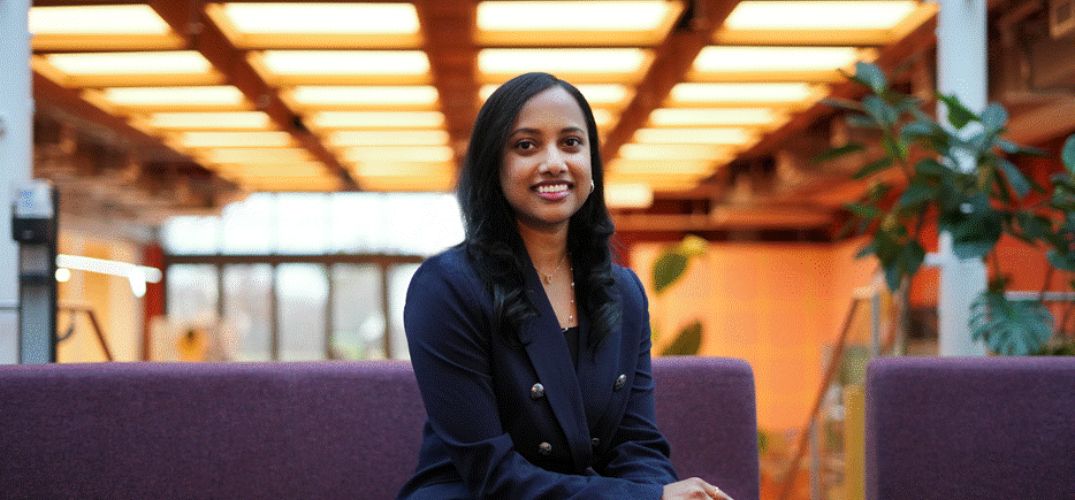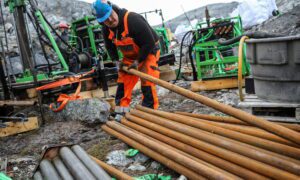In an era where technology drives global economies and enterprise agility hinges on digital foresight, Sushma Kukkadapu emerges as a quiet yet powerful force shaping the evolution of enterprise systems. Drawing on her wealth of industry knowledge in designing high-impact infrastructure, automation frameworks, and AI-enabled platforms, Kukkadapu’s work is helping companies transition from legacy dependencies to future-ready ecosystems.
“The greatest challenge for large enterprises today isn’t just adopting new technology—it’s transforming legacy forecasting systems while maintaining operational continuity,” Kukkadapu explains, and also adds that “Traditional financial models are too static and manual-intensive. The future belongs to dynamic, self-adapting systems that can recalibrate in real-time as business conditions change.”
Her journey is not that of a conventional technologist. It is a story of cross-disciplinary fluency, grounded in deep software engineering acumen and elevated by a rare understanding of enterprise-scale needs. At a time when organizations struggle to balance innovation with stability, Kukkadapu has built a reputation for developing solutions that are both cutting-edge and resilient, systems that not only scale but also scale intelligently.
Revolutionizing Business Through Predictive Intelligence
At the heart of her impact is her pioneering work in predictive automation. By integrating machine learning models into business workflows, Kukkadapu has enabled real-time forecasting and adaptive planning for some of the world’s most complex financial environments. Her systems have reduced manual intervention, enhanced decision velocity, and generated millions in cost savings.
When discussing the transformation from reactive to proactive financial planning, Kukkadapu’s enthusiasm is evident. “What excites me most is how we’re shifting from historical trend analysis to causal building blocks in forecasting,” she says. “By decomposing forecasts into explainable factors, we enable finance teams to create what-if scenarios instantly. I’ve seen planning cycles that once took weeks compressed into days or even hours—that’s where the real competitive advantage emerges.”
Yet her contributions are not confined to algorithms or infrastructure alone. Sushma is an architect of trust. As cybersecurity risks escalate and compliance landscapes evolve, her innovative security protocols and certificate management frameworks are becoming vital tools in the defense strategies of Fortune 500 enterprises. Whether it’s implementing zero-trust architecture or securing hybrid cloud environments, she ensures that innovation does not come at the expense of security.
“In financial systems, security isn’t negotiable,” she emphasizes with conviction. “I’ve learned the hard way that certificate management and authentication systems need to be built into the architecture from day one. When a production system goes down due to an expired certificate, the costs cascade through the entire organization. This is why I insist on robust monitoring systems that provide early warnings for potential security vulnerabilities.”
Kukkadapu’s versatility is best exemplified by her work across various sectors, including retail, finance, and education. One of her most remarkable early projects was an open-source, predictive elections platform that earned her international recognition at the Fossasia Summit in Singapore. In a world flooded with short-lived tech experiments, her systems stand out for their durability, pragmatism, and measurable impact.
Architecting Enterprise Automation for Tomorrow’s Financial Challenges
Now, as industries explore the possibilities of edge computing, generative AI, and quantum acceleration, Kukkadapu is leading efforts to harmonize these emerging capabilities with the operational realities of global businesses. Her architectural frameworks emphasize modularity, interoperability, and real-time adaptability traits that future-proof her solutions in dynamic, uncertain markets.
“The most valuable predictive systems I’ve built share a common architecture—they separate the mechanism of prediction from the interpretation of results,” she adds. “This allows business users to interact with AI outputs through intuitive interfaces without needing to understand the complex mathematics underneath. What matters is that they can trust the system’s recommendations and easily adjust parameters when business conditions change.”
Her technical leadership extends beyond code and configurations. Sushma is a sought-after mentor in backend engineering, specializing in the design of enterprise systems and modern cloud-native engineering. She has mentored the next generation of backend engineers and solution architects by instilling not just technical skills but a systems-thinking approach essential for enterprise innovation.
“I tell every engineer on my team—focus on building test coverage first, integration tests second, and features third,” Kukkadapu shares. “When developing enterprise-scale systems, quality cannot be an afterthought. Every time we’ve rushed features without a proper testing infrastructure, we’ve paid for it tenfold in production incidents. This discipline has helped us consistently maintain high-quality deployments even under intense delivery pressure.”
In every facet of her work, Kukkadapu embodies a principle often overlooked in fast-paced tech environments: that true innovation is not just about speed or novelty, but about delivering lasting value. As industries hurtle toward automation and intelligence at scale, her career reminds us that the most enduring systems are those architected with purpose, precision, and profound understanding of the businesses they serve.
When asked about her future focus, she reflects momentarily. “I’m particularly interested in how we can make enterprise forecasting systems more resilient to black swan events. The pandemic demonstrated that traditional models collapse when faced with unprecedented disruptions. My current work focuses on creating adaptive systems that can quickly recalibrate when reality diverges from historical patterns. This isn’t just about better algorithms—it’s about creating entirely new approaches to uncertainty.”
Sushma Kukkadapu isn’t just building technology; she’s building the future scaffolding of enterprise resilience. And as digital transformation matures into digital intelligence, hers is a voice that will continue to shape the narrative of what enterprise engineering should aspire to be.





























